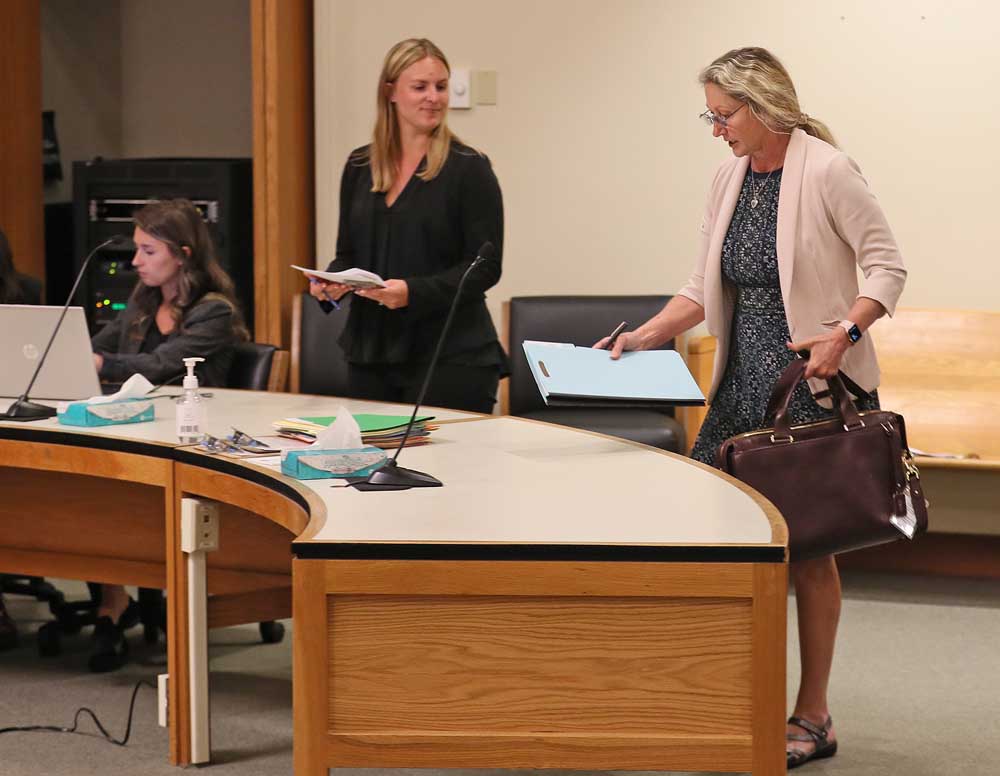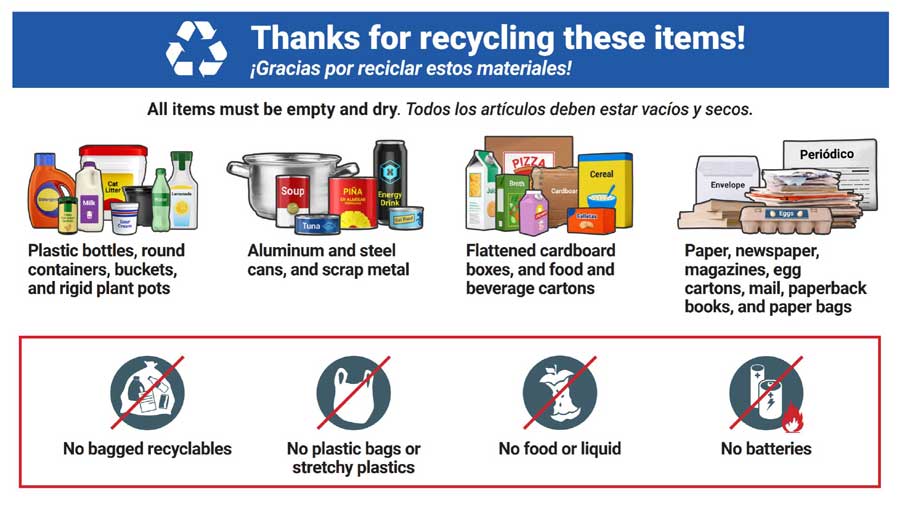Local public defenders sound off on new legislation, find quick-fix to shortage crisis
Published 4:00 pm Sunday, July 2, 2023

- "I've been working here for 23 years — Jackson County pulls together and we try to come up with a solution to fix a problem," said Christine Herbert of Rogue Valley Defenders.
The Legislature last week approved a bill throwing $96 million at a problem that has had public defenders, including those in Jackson County, up in arms for the past year.
The problem is that hundreds of people in Oregon who have been charged with crimes don’t have lawyers to defend them because of a shortage of public defenders.
In Jackson County alone, 552 defendants needed attorneys as of Friday, the most in the state. What’s more, 10 counties, including Jackson, “must convene crisis teams” to help resolve the unrepresented cases, according to the Office of Public Defense Services, the state entity that contracts with public defenders throughout Oregon.
The “crisis team” approach is part of Senate Bill 337, which contains a number of solutions to the public defender shortage, including the allocation of $96 million. Local public defenders say they still have questions about how the legislation will affect them.
In the meantime, the leaders of three local public defender consortiums in Jackson County met Thursday to hammer out a strategy for addressing the shortage.
“I’ve been working here for 23 years — Jackson County pulls together and we try to come up with a solution to fix a problem,” said Christine Herbert, a defense lawyer who leads a consortium called Rogue Valley Defenders.
Plan for unrepresented defendants
Doug Engle, executive director of Southern Oregon Public Defenders, said SOPD, Rogue Valley Defenders and Los Abogados normally don’t have to prioritize cases. But with hundreds of defendants unrepresented, the consortium had to take a different approach.
“That’s the job that we’ve chosen to do, and that’s what the job is, to represent people charged with crimes, whether they’re in jail or out of jail,” Engle said. “We have no choice — July 1 we have a new contract, we have to do our jobs.”
Public defenders — who are not state employees and work under contract with OPDS — learned recently that a three-month contract extension, as opposed to a new two-year contract, goes into effect July 1. The extension, OPDS said, was necessary because the agency’s budget came late in the contract cycle. Because July 1 fell on a Saturday, for all practical purposes the extension begins July 3, Herbert said.
Thinking ahead to the contract extension’s effective date, consortium leaders examined a list in excess of 700 defendants, both in and out of custody, who need representation.
“We simply don’t have enough attorneys to assign everyone to a lawyer from this list. Hence, we prioritized the list to ensure that all in-custody people facing crimes have lawyers,” Herbert said.
Defendants facing Measure 11 crimes have lawyers now, as do those who are in and out of custody facing A, B and C felonies.
“We’ve got to take care of the big fire first,” Herbert said. “We all can agree that priority has to be with those lodged folks, and we need to find them lawyers immediately.”
But people in custody on contempt charges do not have attorneys, and people out of custody facing misdemeanors still do not have attorneys, according to Herbert.
“There isn’t bandwidth to take out-of-custody people facing misdemeanors right now,” Herbert said.
Don Scales, a defense lawyer who leads Los Abogados, said the defendants who don’t meet the top criteria are “still very important to us.”
For now, Scales said, it was important to get jailed defendants representation by July 1, “so we can hit the ground running” on the start of the new fiscal year.
Senate Bill 337
The legislation includes a package of reforms to address the public defender shortage, including asking judges to implement a “public safety unrepresented defendant crisis plan” no later than Sept. 1; creating a commission to employ attorneys who are trial-level public defense providers; providing more compensation to public defenders, as well as ensuring that “the workload of appointed counsel … be controlled to permit effective representation.”
Engle wasn’t sure how many of the legislation’s 108 provisions would have an impact, but he was disappointed that the Legislature stripped out of the bill’s final version a pay increase to make public defender compensation on par with state prosecutors.
“That would give public defenders a huge raise,” Engle said.
Lisa Greif, a lawyer with Two Rivers Legal, under the Los Abogados consortium, criticized the idea of a crisis plan, stating that she’s been meeting with judges and court staff about the issue for the past several months.
“So far, I don’t think we’ve come up with any solid plan,” Greif said.
Greif is also curious about the legislation’s provision concerning state-employed attorneys.
“I’m just concerned about how they’re going to find people to do that,” Greif said. “I don’t really see a solid recruitment plan anywhere.”
She worried what emphasis a system like that will place on consortiums and wondered whether attorneys would “walk” away from the profession in response.
“Where are these attorneys doing to be headquartered, and then, to go travel all over the state to do cases?” Greif said. “There are certainly attorneys that don’t mind traveling … but there are certain nuances you get by practicing in one county.”
Engle wondered why the Legislature had to provide money for Salem-based attorneys to potentially try cases in Southern Oregon.
“Why would they not just pay more money to get more lawyers in Southern Oregon, and we can do the cases?” he said. “(State employees) don’t know the area. It seems questionable.”
“I don’t know how much longer I will do public defense” if the state keeps suffering shortages of public defenders and contract issues, Greif said.
“There are other things the attorneys in my firm can do,” she said. “Not saying we’re going to do that, because we are very passionate about this work. We all strongly believe in providing public defense services.”
Herbert said she believes Oregon has an overall shortage of attorneys — both on the defense and prosecution sides — that is contributing to the public defender shortage crisis.
“That, in and of itself, is kind of critical. Trying to attract law students into this work has been problematic,” she said. “Is it because of compensation? Is it because it’s a lot of work? I don’t know. But that will continue to be a crisis going forward.”










